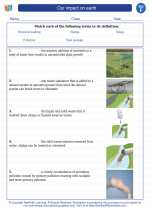Our impact on earth -> producers
What are producers?
Producers are organisms that have the ability to produce their own food through the process of photosynthesis. They are the foundation of the food chain, providing energy for other organisms in the ecosystem.
How do producers make their own food?
Producers use a green pigment called chlorophyll to capture sunlight. They take in carbon dioxide from the air and water from the soil, then use these raw materials to produce glucose and oxygen through the process of photosynthesis.
Examples of producers
Common examples of producers include plants such as grass, trees, flowers, and algae. These organisms play a crucial role in providing food and energy for the rest of the ecosystem.
Importance of producers
Producers form the foundation of the food chain by converting sunlight into food energy. They are essential for the survival of other organisms in the ecosystem, as they provide nutrients and oxygen.
Impact of human activities on producers
Human activities such as deforestation, pollution, and climate change can have detrimental effects on producers. It's important to understand and mitigate these impacts to ensure the health of ecosystems and the survival of producers.
[Producers] Related Worksheets and Study Guides:
.◂Science Worksheets and Study Guides Sixth Grade. Our impact on earth
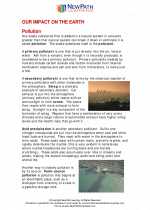
 Worksheet/Answer key
Worksheet/Answer key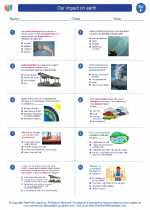
 Worksheet/Answer key
Worksheet/Answer key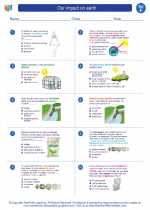
 Worksheet/Answer key
Worksheet/Answer key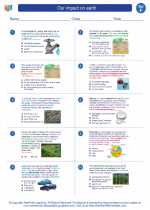
 Vocabulary/Answer key
Vocabulary/Answer key